On August 1, Nissan Motor Co., Ltd. (hereinafter referred to as “Nissan”), Honda Motor Co., Ltd. (hereinafter referred to as “Honda”) and Mitsubishi Motors Corporation (hereinafter referred to as “Mitsubishi Motors”) signed a memorandum of understanding. Mitsubishi Motors will participate in the research framework based on the memorandum of understanding (MOU) on starting to consider establishing a strategic partnership for vehicle intelligence and electrification signed by Nissan and Honda on March 15, and agreed to cooperate in software, battery and other electric vehicle-related technology research to save development costs.
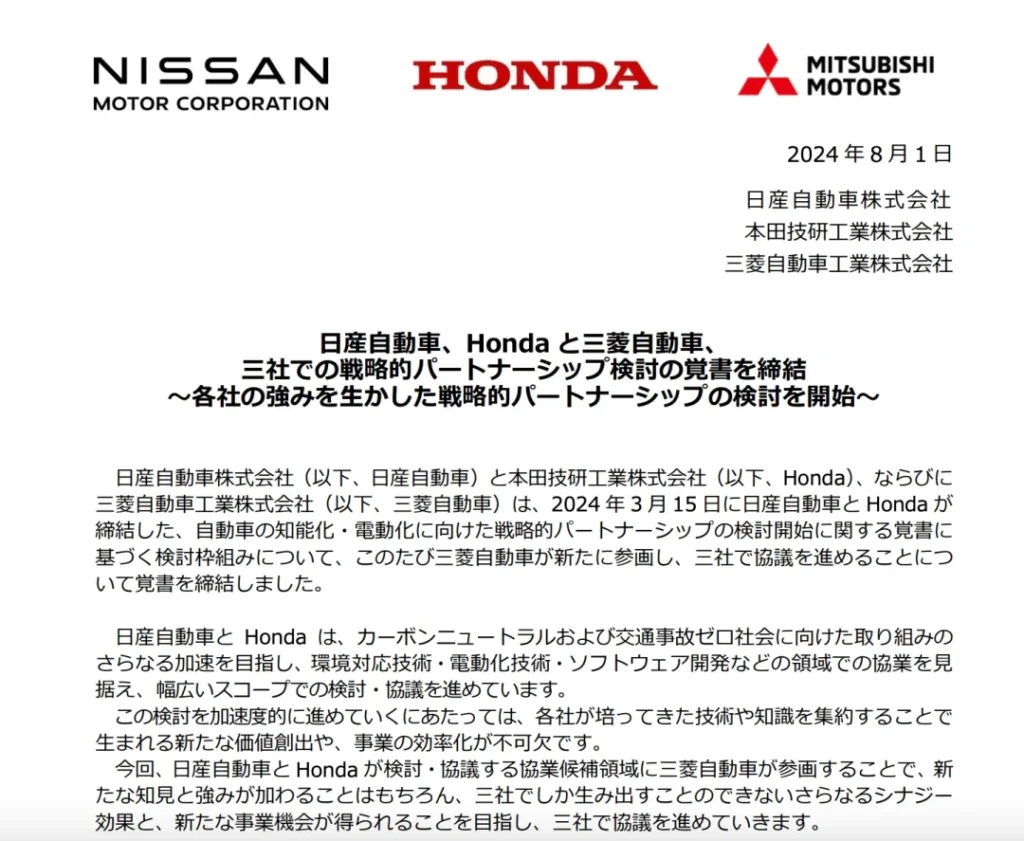
Mitsubishi’s joining of the Nissan-Honda cooperation camp seems to be a matter of course. As is known to all, Mitsubishi is one of the members of the Renault-Nissan-Mitsubishi Alliance, and Nissan holds 34% of Mitsubishi’s shares, while Honda and Nissan are the second and third largest automotive manufacturers in Japan respectively. Analysts said that Nissan and Honda face challenges in the development of the Chinese market, and they must produce electric vehicles to possibly stay, so the significance of the alliance of the three companies is significant. Previously, GAC Mitsubishi, a joint venture established by Mitsubishi Motors and GAC Group, has announced the termination of domestic production.
It is worth mentioning that just today, Honda and Nissan jointly held a press conference. In order to further deepen the strategic partnership framework, the two companies signed a memorandum of understanding on deepening the strategic partnership and conducted extensive discussions and reviews. It is understood that in order to promote and develop electric vehicles, the two sides reached a joint research agreement on the basic element technologies in the field of the next-generation software-defined vehicle (SDV) platform, and signed a memorandum of understanding on deepening the strategic partnership, involving technical fields such as batteries and electric vehicle drive units “E-Axle”.
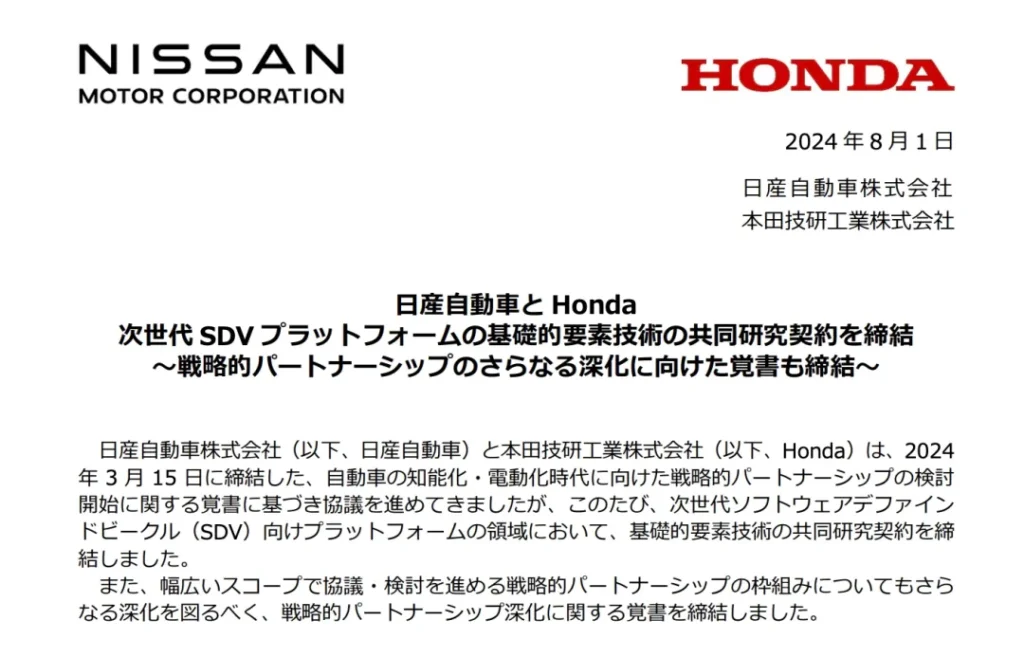
On March 15, Nissan and Honda announced the signing of a memorandum of understanding to carry out comprehensive cooperation in the field of electric vehicles, including the production of parts and components related to electric vehicles, the development of automotive software and artificial intelligence, especially the generalization in the field of in-vehicle software. Nissan and Honda hope to reduce costs through resource integration and improve the product competitiveness in response to Chinese electric vehicles.
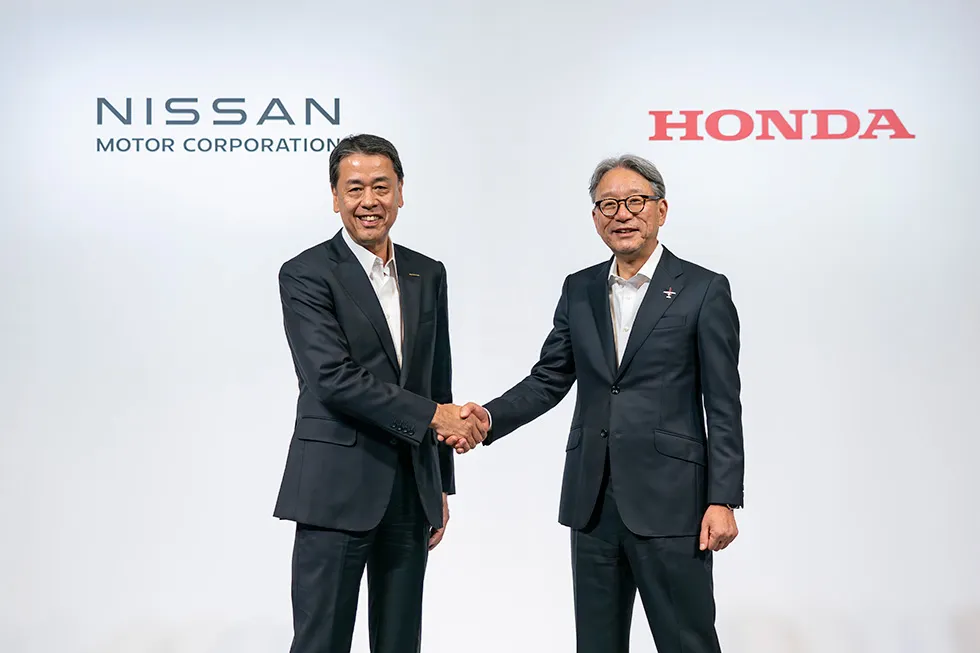
It can be seen that under the pressure of industry transformation and transformation, Japanese auto companies are accelerating to hold together for warmth. Mitsubishi’s joining of the Nissan-Honda alliance is considered to be the performance of Japanese auto companies accelerating to hold together under the tide of electrification and intelligence. After entering 2024, Chinese electric vehicle companies led by BYD began to launch an offensive against traditional joint venture companies. The sales of previous popular low-priced fuel vehicles including Fit, Corolla and Sylphy continued to decline, and the market share of Japanese brands in the Chinese market continued to decline, which then triggered the thinking of Japanese manufacturers to accelerate the transformation to electrification. Not long ago, Honda China announced that it will close a factory of the joint venture company in Guangzhou in October, and another factory in Wuhan, Hubei Province will stop production from November.
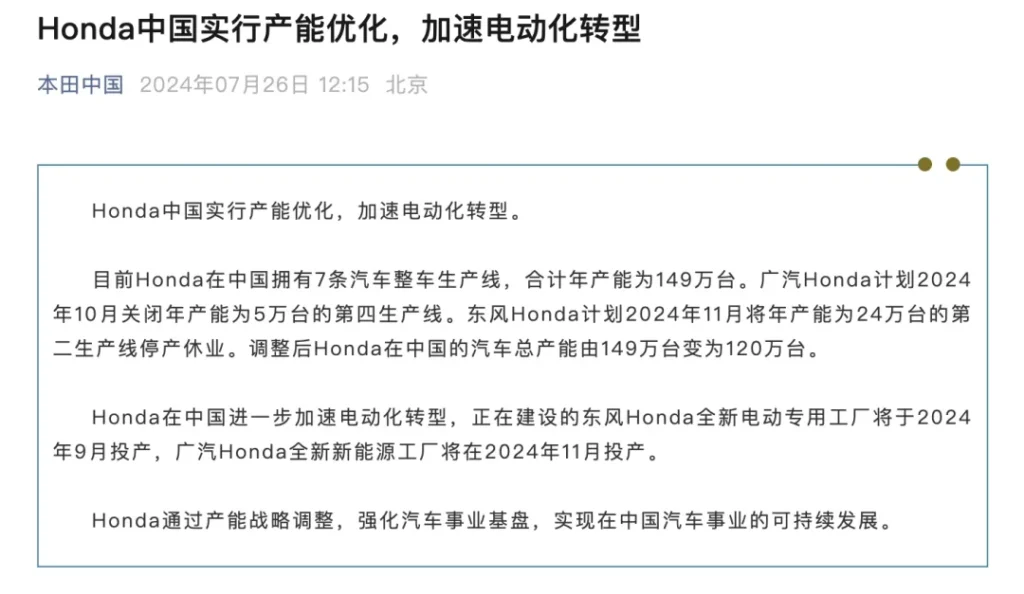
In addition to this, the Japanese domestic market is also accelerating to involute. Toyota, the largest automotive manufacturer in Japan, has successively signed cooperation agreements with Mazda, Suzuki and Subaru. In May this year, the heads of the three auto companies of Toyota, Mazda and Subaru rarely appeared together and announced that they will form an alliance to jointly cooperate in the research and development of the next-generation internal combustion engine technology that can be used in the Hybrid petrol-electric system and can even eventually achieve the goal of zero emissions. In addition, in the field of electrification, Mazda, Suzuki and Subaru all have cooperative relationships with Toyota Motors and jointly develop electric vehicles with its technology.
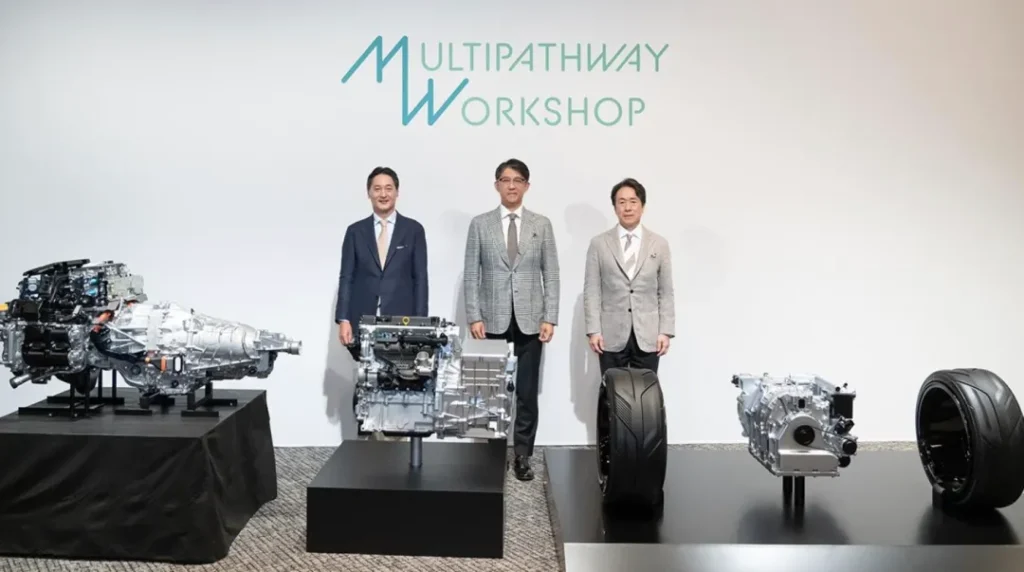
Because the development of a new software system requires a huge amount of R & D cost investment, the three auto companies plan to reduce costs through cooperation and transfer business resources to other electrification fields. However, the cooperation among the three auto companies is not close, because they only signed a cooperation agreement, and whether the three companies can go to the end together is also an unknown.
Of course, holding together for warmth is not unique to Japanese auto companies. For example, Audi and SAIC, Volkswagen and XPeng, Stellantis Group and Leapmotor, etc. Behind such frequent and large-scale alliances is the increasingly fierce industry transformation and competition, and auto companies need to join hands to tide over the difficulties. The cooperation among Nissan, Honda and Mitsubishi is also like this. They will continue to explore on the pure electric route, but at the same time, the challenges they face are also relatively large.
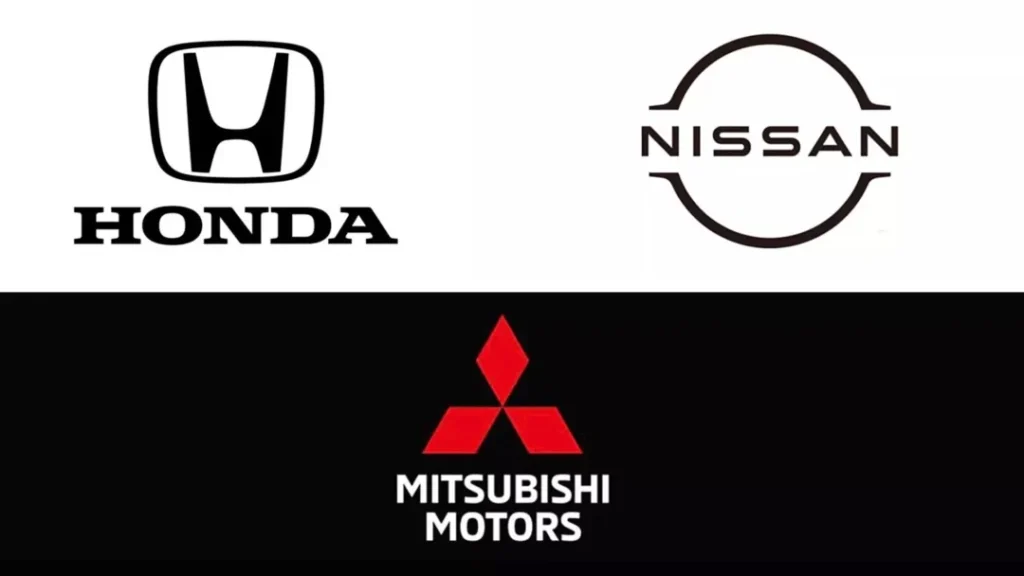
As globally renowned automotive manufacturers, Nissan, Honda and Mitsubishi have deep accumulations in technology and capital. They are running towards the electric vehicle business with greater determination. As for whether they will catch up later and have a certain impact on the competition pattern of the global electric vehicle market, this topic has received attention.